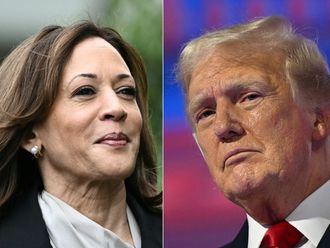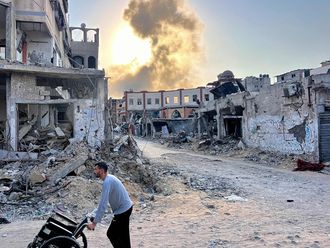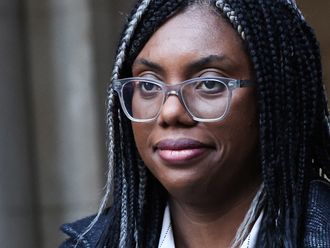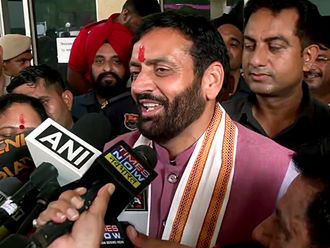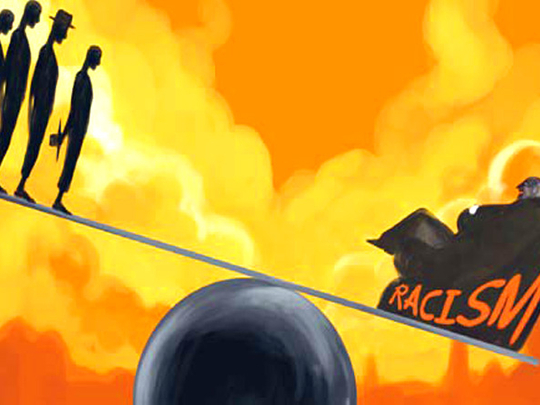
There were 5,000 people gathered in and outside the Ventersdorp Afrikaner Protestant Church on Friday for AWB leader Eugene Terre'Blanche's funeral. But make no mistake about it — not a single one of them was a real Afrikaner.
In that church, gathered to bury a man who represented their backward views, were racists, right-wingers, self-delusionists, white supremacists and separatists. Gathered there were 5,000 people who represented the worst of South Africa. They are not Afrikaners, and it is inaccurate to refer to them as such.
The Afrikaners I know are the Afrikaners who chose F.W. de Klerk and Roelf Meyer, and rejected Terre'Blanche. The Afrikaners with whom many black South Africans share a workplace are the Afrikaners who, in 1990, overwhelmingly voted "yes" for reform and rejected the racism of Terre'Blanche and his ilk.
Singer Steve Hofmeyr and many of his supporters are trying to hijack this Afrikaner. At Terre'Blanche's funeral, Hofmeyr tried to convince the world that the Afrikaner had been wounded by the death of Terre'Blanche. He lies. Rabid, racist political views — the type that Terre'Blanche espoused — have been dealt a blow.
South Africa has been in a false frenzy and false consciousness this past week. I have been astonished by political commentators who have suggested that the death of Terre'Blanche is a chance for South Africans to confront their "unresolved racial past". This is far from the truth.
It suggests that three million Afrikaners are racist like Terre'Blanche. It also suggests that blacks are victims like Terre'Blanche's victims or, worse, racists of the nature of Julius Malema [president of the African National Congress Youth League]. This is tosh. The majority of Afrikaners, with their problems, fears and hopes, do not support even an iota of Terre'Blanche's views. The majority of black South Africans are appalled by Malema and his sick utterances.
It is time to stop these lies. South Africa is not on the brink of war and it is not about to fall into the madness of racial conflagration. Terre'Blanche and the racists who called black reporters "baboons" on Friday are a lunatic fringe. So is Malema, albeit with a little more power.
Oversimplification
The tragedy of the all-too-easy explanations that have been proffered this past week is that, much like Malema, they prevent South Africans from confronting the real issues that blight the new South Africa. Even the most obvious issues raised by the slaying of Terre'Blanche have been put on the back-burner in the haste to dress up Afrikaners as spooked right-wingers and blacks as angry Malema acolytes.
One of these issues is the appallingly low wages farm labourers are paid. Isolating the allegation that Terre'Blanche might have been paying his labourers a mere R300 (Dh152) a month reminds us again of what a distorted country South Africans live in. How is anyone supposed to live on such a pittance?
The response to the murder shows South Africans are again falling into the trap of failing to deal methodically with black aspiration. Sixteen years after blacks first voted and started participating in a true democracy, the legitimate aspirations of blacks are still regarded with suspicion and mockery.
Such an attitude on the part of business, the media, political leadership and others is a recipe for disaster. South Africans cannot continue to pretend that blacks do not want to enter the economy fully, that South Africans need to accelerate the journey to bring about the day when all people can be judged on the content of their characters, rather than on the colour of their skin.
This demands some very tough action on the policy front, coupled with determination and hard work by South African politicians and society in general. If this does not happen, then the crass populism of the Malemas of this world will continue to triumph over real solutions to South African problems.
The death of Terre'Blanche, therefore, should spur South Africans on to do something quite different to what many say.
Instead of obsessing about race relations, South Africans should be putting pressure on the government to attack the conditions that make racial polarisation possible here: inequality and poverty.
This is not a "sexy" battle. It is not a battle that the Malemas of this world will rush to join. But it is the real and urgent issue South Africa faces. This is a battle that calls for cool and calm heads.
If South Africans do nothing about the persistent inequality that stalks their land, then former president Thabo Mbeki's warning that their dream, if deferred, could explode, will come true.
(Justice Malala is a political commentator in Johannesburg, South Africa)


